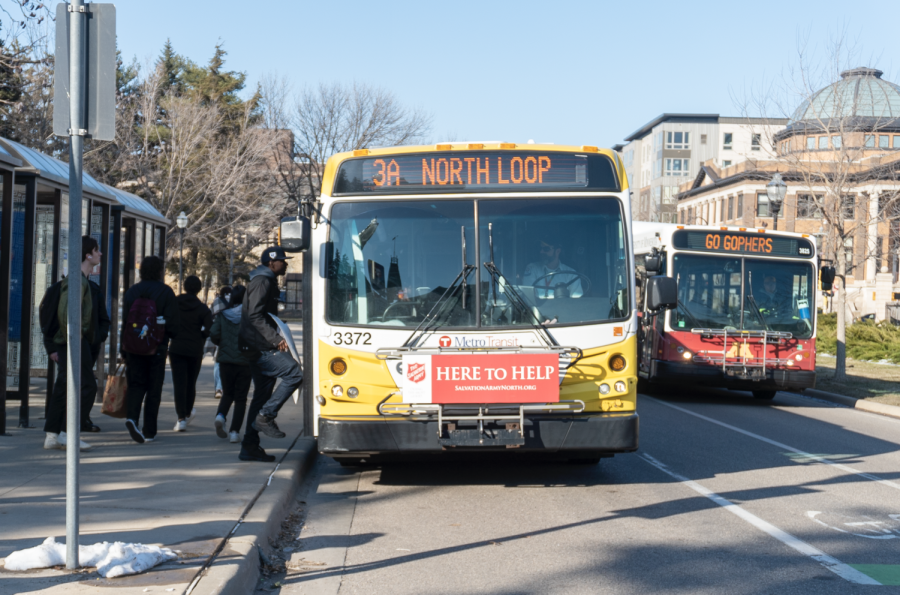Student lobbyists are finalizing their agenda to advocate for more state financial support to the University of Minnesota, an end to the “brain drain” and shared governance at the Capitol this January.
The Legislative Certificate Program, an initiative of the Minnesota Student Association, has been training students to lobby on behalf of the University at the state Legislature since 2008. This year, 16 students will bring their concerns to lawmakers when the session opens Jan. 4, 2011.
High on their agenda is the UniversityâÄôs budget request. LCP students will advocate alongside the administration for $1.3 billion over the next two years to bring down tuition and restore faculty positions. In the previous biennium, the University requested $1.4 billion but received only $1.2 billion.
“This year is really a key year for student lobbying because of the budget cliff that we are looking toward,” Matt Forstie, a first-year student and LCP advocate, said.
With the budget deficit, legislators will look to make cuts in higher education and health care, LCP Political Director Thomas Trehus said.
“We just donâÄôt want to be cut anymore,” he said.
In the long term, the goal is to increase state funding to cover two-thirds of tuition and ease the burden on students.
“ItâÄôs not realistic this session,” Trehus said. “But if we put it on the agenda and keep moving forward, I think eventually we can get there again.”
The second highest priority is the bonding request. Next year will not be a bonding year, but depending on the outcome of the gubernatorial recount, the University could secure funding for projects like a new physics and nanotechnology building and the Itasca Biological Station, both of which were vetoed from the bill last year.
Democrat Mark Dayton expressed interest in a bonding bill during his campaign, Trehus said. If Dayton becomes governor, the LCP will pursue that avenue for state funding.
The LCP would also like to see a tuition debt relief to students who stay in Minnesota after they graduate.
“We want to keep the talent in the state,” Trehus said. If college graduates stay in Minnesota and start small businesses they can generate revenue for the state.
Trehus introduced the platform Tuesday to the Legislative Affairs committee, where it passed unanimously. The committee showed the most interest in advocating for shared governance, but the platform stipulated that the LCP would begin pursuing shared governance at the Legislature if they are unsatisfied with the Board of RegentsâÄô response.
Trehus said a regents policy for shared governance was preferred. But, he said, MSA has been working on shared governance since 2005 with no substantive results.
Some committee members said they wanted to pursue a state statute regarding shared governance despite recent progress working with the administration and the Board of Regents.
Nick Saab, legislative affairs director, said if they didnâÄôt get the issue on the regentsâÄô docket until May, shared governance would become an “issue to be recycled again next year.”
MSA representative Paul Buchel, who is also chairman of the ad-hoc shared governance committee, said he thought MSA needed to begin groundwork at the Legislature by talking to student “allies” like Rep. Phyllis Kahn, DFL-Minneapolis, Sen. Larry Pogemiller, DFL-Minneapolis and Rep. Tom Rukavina, DFL-Virginia.
LCP advocates have had five weeks of training on lobbying, the state Legislature, the administration and effective communication techniques.
A large part of their responsibilities includes monitoring higher education committee meetings and following legislation, Trehus said. But LCP lobbyists must also be prepared to testify on behalf of students to the House and Senate higher education committees. Trehus said they were able to testify three times last year.
In addition, program participants from Minnesota can also work to make sure their representatives are supporting students.
“Students are holding their legislators accountable,” Trehus said.
Forstie said heâÄôs a little bit nervous about approaching policymakers in January since he has limited past experience working with them.
“What I know about all the lawmakers IâÄôve ever spoken to is that they are always interested to hear the perspectives of their constituents, especially students,” he said.
Before the students hit St. Paul, forum must approve the platform. They will consider the agenda items Tuesday.
















